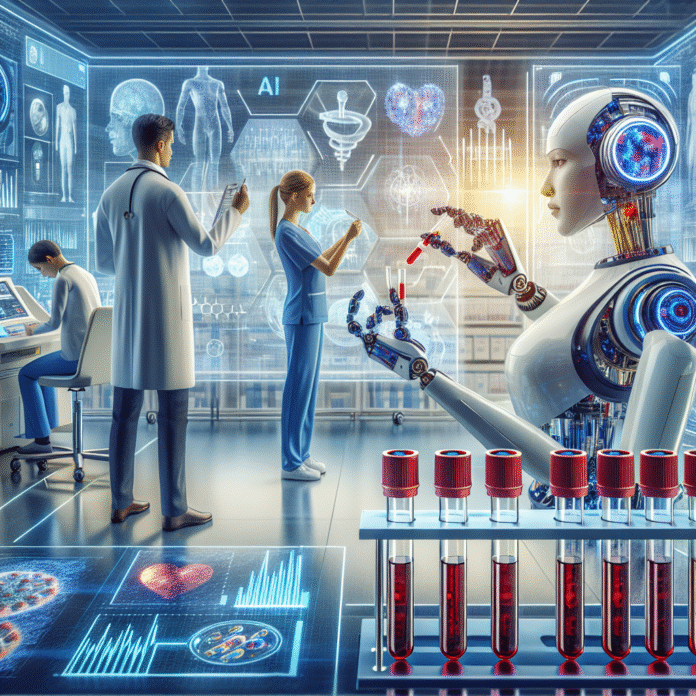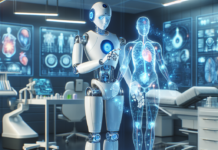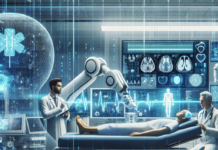AI and Healthcare: Improving Diagnosis and Patient Care Through Technology
The advent of Artificial Intelligence (AI) has revolutionized numerous sectors, and healthcare is among the most significantly impacted. The integration of AI into healthcare systems is enhancing diagnostic accuracy, personalizing patient care, and streamlining operations, ultimately leading to better patient outcomes.
Enhancing Diagnostics
AI algorithms, especially those based on machine learning, are capable of analyzing vast amounts of data quickly and efficiently. Here are some key ways AI is improving diagnostics:
-
- Image Analysis: AI-powered tools can accurately analyze medical imaging, such as X-rays, MRIs, and CT scans, helping radiologists identify abnormalities like tumors or fractures faster and with fewer errors.
-
- Predictive Analytics: AI systems can evaluate patient data, including medical history and genetic information, to predict conditions before they develop, enabling preventive care.
-
- Natural Language Processing (NLP): NLP algorithms can sift through unstructured clinical text, extracting relevant information to support diagnosis and treatment plans.
Personalizing Patient Care
AI technologies are enabling a shift towards personalized healthcare, allowing providers to tailor treatments to individual patient needs:
-
- Personalized Treatment Plans: AI can analyze patient data and suggest treatment plans that are most likely to be effective based on similar cases.
-
- Wearable Health Devices: Devices that monitor health metrics in real time use AI to alert patients and providers about abnormalities, facilitating timely interventions.
-
- Patient Engagement: AI chatbots and virtual assistants can provide patients with timely information about their health, improving engagement and adherence to treatment plans.
Streamlining Operations
In addition to improving diagnostics and patient care, AI is also making healthcare systems more efficient:
-
- Administrative Efficiencies: AI tools automate administrative tasks like scheduling appointments and processing insurance claims, reducing the burden on healthcare staff.
-
- Supply Chain Management: AI is optimizing inventory management and forecasting needs, ensuring that healthcare providers have the necessary supplies on hand without overstocking.
-
- Telemedicine: AI enhances telehealth platforms, improving virtual consultations by providing real-time data analysis and recommendations to clinicians.
Challenges and Considerations
While AI holds significant promise, its adoption in healthcare isn’t without challenges. Concerns regarding data privacy and security, the need for comprehensive regulatory frameworks, and potential biases in AI algorithms necessitate careful consideration.
Conclusion
The integration of AI in healthcare is an exciting frontier that promises to transform the way medical professionals diagnose and treat patients. As technology continues to evolve, embracing AI will enable healthcare providers to deliver more accurate, personalized, and efficient care, ultimately benefiting patients and healthcare systems alike.







